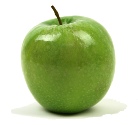



Helping you make healthy choices for you and your family

Hay Fever -
These symptoms are not life threatening but as hay fever is caused by an allergic reaction to pollens, it indicates that the immune system is over-reacting to histamine, a chemical that the body releases to fight invaders such as bacteria and viruses. This is why some of the symptoms are similar to having a cold and also why medical treatments often include drugs called “anti-histamines” to reduce the symptoms.
If you would like to reduce your symptoms, there are a number of things which may help before turning to medication.
If you would like to reduce your symptoms, there are a number of things which may help before turning to medication.
Stay indoors – this may be a bit drastic but on days when the pollen count is high, staying indoors with the windows and doors shut should reduce your exposure to pollen. If you have the luxury of air-conditioning this should be easier to do. A good quality air filter may also help. If you must go out, the worst times are first thing in the morning and early evening when plants release pollen into the air.
Dry your clothes indoors – hanging your clothes outside to dry will allow pollen to stick to the clothes and may cause a reaction later when you wear them. If drying indoors is a problem, then avoid hanging them outside in the early morning and evening when there is more pollen in the air.
Cool compress for eyes - if you have sore, red eyes, lie down for 20 minutes with a cool compress over your eyes made from cotton pads soaked in rosewater, eyebright or cold chamomile tea.
Aromatherapy - try steam inhalations containing a few drops of essential oils of eucalyptus, peppermint, lavender or pine to clear congestion.
Herbal remedies – a number of herbs have been found to help sufferers of hay fever. The following may reduce symptoms but should not be regarded as medical advice.
Dry your clothes indoors – hanging your clothes outside to dry will allow pollen to stick to the clothes and may cause a reaction later when you wear them. If drying indoors is a problem, then avoid hanging them outside in the early morning and evening when there is more pollen in the air.
Cool compress for eyes -
Aromatherapy -
Herbal remedies – a number of herbs have been found to help sufferers of hay fever. The following may reduce symptoms but should not be regarded as medical advice.
|
|
Butterbur was found to be as effective as a proprietary anti-
|
|
|
Stinging Nettle Leaves may help treat allergic nasal symptoms. At least one German preliminary study found that capsules made from freeze-
|
|
|
Garlic and Onion may be beneficial due to the high concentrations of compounds such as quercetin. This retards inflammatory reactions so it is worth having plenty of these foods in your diet.
|
|
|
Echinacea may boost resistance to allergens. This can be found in most health food stores.
|
|
|
Chamomile is considered a natural antihistamine and as a relaxing tea or infusion can also help to soothe the emotional problems surrounding allergies like hay fever.
|
|
|
Pycnogenol, an extract from the bark of the French maritime pine, is as effective in preventing release of histamine as a commonly used hay fever drug, sodium cromoglicate. In fact, laboratory studies have shown pycnogenol can block as much as 70 per cent of histamine released from mast cells when they are exposed to airborne allergens such as pollen.
|
|
|
Green tea contains powerful antioxidants, known as catechins, which have a natural antihistamine effect as well as helping to maintain a healthy immune system. Drinking two or three cups of green tea daily, especially during the hay fever season, may be beneficial.
|
|
|
Vitamin C acts as a natural antihistamine to dampen inflammation. A study in Italy found that high dose vitamin C helped to relieve acute hay fever symptoms with a significant reduction in sensitivity to allergens, mucus production and wheezing.
|
Homeopathy – A homeopath may recommend homeopathically potentised pollens taken daily before the hay fever season begins as a kind of inoculation. In a study in the Lancet in 1986, Dr. David Reilly and his team at the Glasgow Homeopathic Hospital found a preparation of mixed grass pollens effective in treating hay fever.
If you find that your symptoms require something more potent, then medication from your doctor or pharmacist may be your only option. Today, many of the drugs now available to treat hay fever are less likely to cause drowsiness than those available a few years ago. They are mainly anti-

If you suffer from hay fever, summertime can be really miserable but you are not alone. It is estimated that up to 25% of the population suffers from hay fever, although the name “hay fever” is actually incorrect. The condition is caused by weeds that pollinate during the hay-mowing season, but not by the hay itself. Ragweed pollen accounts for about 75% of hay fever cases. The medical term is “allergic rhinitis” and some people suffer this condition at other times of the year if they are allergic to other pollens from trees or from mould spores.
The common symptoms are
|
|
a runny nose
|
|
|
an itchy nose
|
|
|
sneezing
|
|
|
a blocked nose
|
|
|
watery, itchy eyes
|
Disclaimer: The information in this article should not be regarded as medical advice. If you are receiving medical treatment or taking prescribed medication, you are advised to consult your GP or health practitioner before making any changes to your diet or lifestyle.
| Your Health Your Future |
| Controversial Ingredients |
| Nutritional State |
| Parent and Child |
| Microwave Ovens |
| Recommended Books |
| Skin Absorption |
| Sodium Lauryl Sulphate |
| Propylene Glycol |
| DEA, MEA, TEA |
| Chemical Calculator |
| Fluoride |
| Aspartame |
| Fluoridation |
| Water Filtration |
| Planning a Pregnancy |
| Pregnancy Care |
| Post Pregnancy Care |
| Amazon Books |
| EBooks |
| About Us |
| Health Services |
